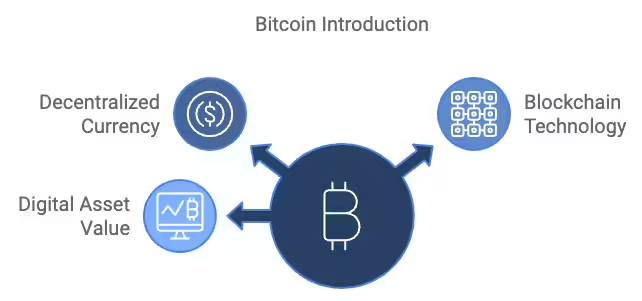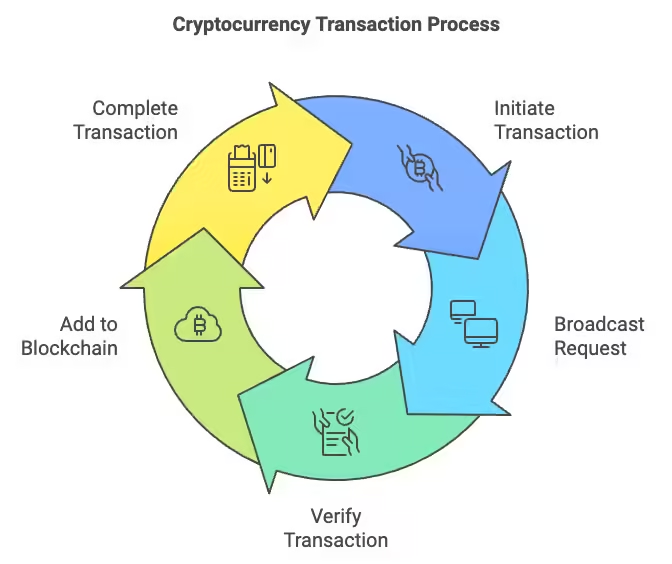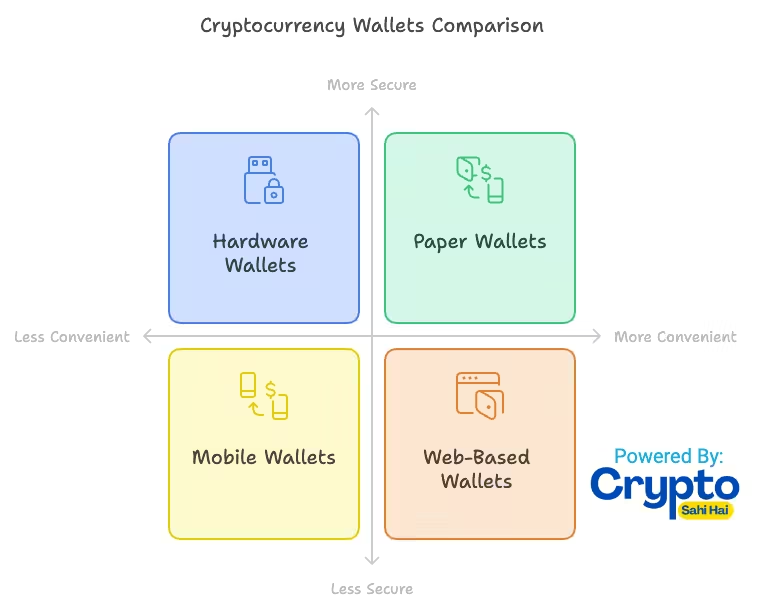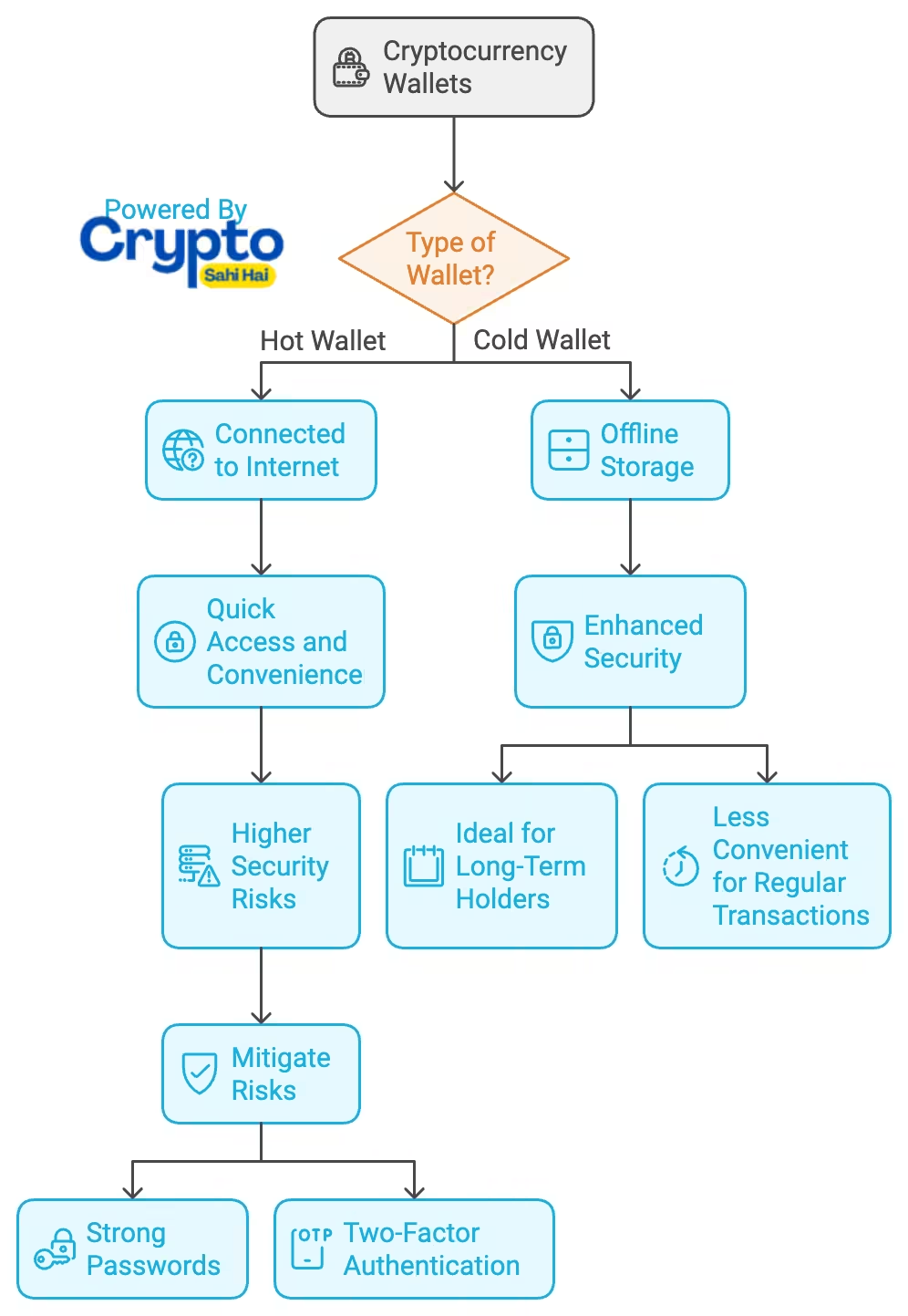Understanding Cryptocurrency: What It Is and How It Works
Cryptocurrency has revolutionized the financial landscape, offering a new way of transacting and investing. This digital asset operates independently of traditional financial institutions, allowing users to engage in secure and anonymous transactions. Understanding cryptocurrency is crucial for anyone looking to navigate the modern financial world, as it encompasses various types, technologies, and investment strategies. In this article, we will delve into the definition of cryptocurrency, how it works, and its implications for investors and users alike.
What is Cryptocurrency?
How is cryptocurrency defined?
Cryptocurrency is defined as a digital currency that utilizes cryptography for security, making it nearly impossible to counterfeit or double-spend. Unlike traditional currencies issued by governments, cryptocurrencies operate on a decentralized network using blockchain technology. This decentralization means that no central authority, like a bank or financial institution, governs the currency, allowing for peer-to-peer transactions without the need for a third party.

The intrinsic value of cryptocurrency is often determined by supply and demand dynamics within the cryptocurrency market, and its appeal lies in the potential for anonymity and security during transactions.
What are the main types of cryptocurrency?
The main types of cryptocurrency can be broadly categorized into several classes, each serving different purposes and functionalities. Bitcoin, the first cryptocurrency, remains the most well-known and widely used, often referred to as digital gold. Other popular cryptocurrencies include Ethereum, which is known for its smart contract capabilities, and Ripple, primarily utilized for cross-border payments. Additionally, there are numerous altcoins—alternative cryptocurrencies to Bitcoin—each offering unique features and improvements over the original coin.
What is the first cryptocurrency?
The first cryptocurrency, Bitcoin, was introduced in 2009 by an anonymous person or group known as Satoshi Nakamoto. Bitcoin was designed to be a decentralized form of currency, allowing individuals to engage in transactions without needing a central authority. The innovative use of blockchain technology was a groundbreaking feature that enabled Bitcoin to function as a secure and transparent ledger for all transactions, establishing the foundation for many cryptocurrencies that followed.

Bitcoin’s introduction marked a significant milestone in the evolution of digital currencies, sparking the creation of thousands of other cryptocurrencies. Its limited supply model, capped at 21 million coins, has contributed to its value as a digital asset, driving interest from both individual and institutional investors. The history of Bitcoin exemplifies the potential of cryptocurrencies to challenge traditional financial systems and create new opportunities for users worldwide.
How Does Cryptocurrency Work?
What technology underpins cryptocurrency?
The technology that underpins cryptocurrency is primarily blockchain technology, which serves as a distributed ledger that records all transactions across a network of computers. Each block in the blockchain contains a list of transactions, and once a block is filled, it is cryptographically linked to the previous block, creating a secure chain. This decentralized nature ensures that no single entity can control or manipulate the entire network, enhancing security and transparency. The process of validating transactions is typically achieved through methods such as proof of work or proof of stake, which require participants to contribute computational power or stake their coins to maintain the integrity of the network.
This innovative technology not only supports the existence of cryptocurrencies but also enables various applications beyond digital currencies. Smart contracts, for instance, have emerged on platforms like Ethereum, allowing for automated and trustless agreements between parties. These advancements highlight the transformative potential of blockchain technology, as it offers solutions for a wide range of industries, from finance to supply chain management, reshaping how we interact with digital assets.
How do cryptocurrency transactions occur?
Cryptocurrency transactions occur through a process that involves sending digital currency from one wallet to another. When a user initiates a transaction, their digital wallet creates a transaction request, which is then broadcast to the network. Miners or validators verify the transaction by solving complex mathematical problems, ensuring that the sender has sufficient funds and that the transaction follows the network’s protocols. Once validated, the transaction is added to a block and subsequently recorded on the blockchain, making it immutable and transparent.

This entire process occurs within minutes, allowing for rapid transactions compared to traditional banking systems, which may take days. Moreover, the absence of intermediaries reduces transaction fees, making cryptocurrency payments more cost-effective for users. The ability to conduct cross-border transactions seamlessly further solidifies the appeal of cryptocurrencies, as individuals can send and receive funds globally without the high fees typically associated with international transfers.
What is blockchain technology?
Blockchain technology is a decentralized digital ledger that records transactions across multiple computers so that the record cannot be altered retroactively. This technology ensures transparency and security, as each transaction is verified by network participants before being added to the chain. A significant advantage of blockchain is its ability to eliminate the need for a third party, allowing for peer-to-peer transactions. This innovative approach reduces the risk of fraud and enhances the reliability of data, making it particularly attractive for industries beyond finance, such as healthcare and supply chain management.
Furthermore, blockchain technology facilitates the development of smart contracts, self-executing contracts with the terms of the agreement directly written into code. These contracts automatically enforce and execute agreements based on predefined conditions, streamlining processes and reducing the likelihood of disputes. As more industries recognize the potential of blockchain technology, its applications continue to expand, solidifying its role as a foundational element of the cryptocurrency ecosystem.
Investing in Cryptocurrency
Is cryptocurrency a good investment?
When considering whether cryptocurrency is a good investment, it is essential to evaluate its unique characteristics and inherent risks, as cryptocurrency is a digital currency that operates independently of traditional financial systems. The cryptocurrency market is known for its volatility, with prices capable of skyrocketing or plummeting within short periods. This volatility can present opportunities for significant returns; however, it also exposes investors to substantial losses. Many cryptocurrency enthusiasts argue that investing in cryptocurrencies like Bitcoin or Ethereum can serve as a hedge against inflation, as they are not tied to traditional financial systems.
Moreover, as cryptocurrencies gain mainstream acceptance and recognition, their potential for growth becomes increasingly compelling. Major financial institutions and corporations have begun to invest in cryptocurrency, further legitimizing its role in the financial landscape. However, potential investors must conduct thorough research and consider factors such as market trends, regulatory developments, and technological advancements before deciding to invest in cryptocurrency.
How to invest in cryptocurrency?
Investing in cryptocurrency involves several steps, beginning with choosing a reliable cryptocurrency exchange where users can buy cryptocurrency. These platforms allow individuals to create an account, deposit funds, and trade various cryptocurrencies, including popular cryptocurrency options available on the crypto exchange. It is crucial to select a reputable exchange that prioritizes security and offers a user-friendly interface for cryptocurrency investment. Once an exchange is chosen, investors can decide which cryptocurrencies to purchase, with many opting for established coins like Bitcoin and Ethereum or exploring new cryptocurrency for potential growth.
After purchasing cryptocurrency, it is essential to store the assets securely in a digital wallet, as this ensures that your crypto exchange transactions remain safe. Wallets can be categorized into hot wallets, which are connected to the internet, and cold wallets, which are offline storage options. Each type has its advantages and disadvantages regarding accessibility and security. Investors should also consider diversifying their investments across different cryptocurrencies to mitigate risks and increase potential returns. Through careful planning and strategic decision-making, investors can navigate the cryptocurrency market effectively.
What are the risks of investing in cryptocurrency?
Investing in cryptocurrency carries various risks that potential investors must consider before entering the market. The first and foremost risk is market volatility; cryptocurrencies can experience dramatic price swings, leading to significant financial losses. This volatility is often influenced by factors such as market sentiment, regulatory news, and technological advancements, making it challenging to predict price movements accurately. Additionally, the lack of regulation in the cryptocurrency market can expose investors to scams and fraudulent schemes, highlighting the importance of conducting thorough research before investing.
Another risk is the security of digital wallets and exchanges. Cyber attacks on cryptocurrency exchanges have resulted in substantial losses for investors, making it crucial to choose secure platforms and implement strong security measures. Furthermore, the irreversibility of cryptocurrency transactions poses a risk; once a transaction is confirmed on the blockchain, it cannot be undone, potentially leading to irreversible losses. Understanding these risks is essential for anyone considering investing in cryptocurrency, as it allows for informed decision-making and effective risk management strategies.
Buying and Storing Cryptocurrency
How can you buy cryptocurrency?
Buying cryptocurrency typically involves signing up for a cryptocurrency exchange, where users can trade traditional currency for digital assets. After selecting a reputable exchange, individuals create an account and undergo a verification process that may require providing identification and other personal information. Once the account is set up, users can deposit funds through various methods, including bank transfers or credit cards, depending on the exchange’s policies. After funding the account, users can browse the available cryptocurrencies and execute buy orders based on current market prices.
In addition to exchanges, individuals can also purchase cryptocurrency through peer-to-peer platforms, which connect buyers and sellers directly, allowing for transactions without intermediaries, making it easier to invest in Bitcoin. It’s essential to conduct due diligence when selecting a platform to ensure a safe and secure transaction. Whether using an exchange or a peer-to-peer platform, it is crucial to remain informed about market trends and prices to make well-timed purchases that align with cryptocurrency investment strategies.
What are the best wallets to store cryptocurrency?
Choosing the best wallets to store cryptocurrency is vital for ensuring the security of digital assets. There are various types of wallets available, each with distinct features that cater to different user needs. Hot wallets, which are connected to the internet, offer convenience for frequent transactions and are suitable for users who actively trade cryptocurrencies. Examples include mobile wallets and web-based wallets, which provide easy access to funds but may expose cryptocurrency data to online threats.

On the other hand, cold wallets, which store cryptocurrencies offline, offer enhanced security for long-term holdings. Hardware wallets and paper wallets are popular options for this category, allowing users to keep their assets safe from potential hacking attempts. Ultimately, the choice of wallet depends on individual preferences, transaction frequency, and security requirements. Regardless of the wallet selected, implementing best practices for security, such as enabling two-factor authentication and regularly updating software, is crucial for safeguarding cryptocurrency data.
What is the difference between hot and cold wallets?
The primary difference between hot and cold wallets lies in their connectivity to the internet and their intended use. Hot wallets are online wallets that allow users to access their cryptocurrencies quickly and conveniently, making them ideal for active traders and those who frequently engage in cryptocurrency transactions. However, this accessibility comes with increased security risks, as hot wallets are more susceptible to hacking and other cyber threats. Users of hot wallets must prioritize security measures to protect their assets, such as using strong passwords and enabling two-factor authentication.

In contrast, cold wallets are offline storage solutions that provide a higher level of security for long-term cryptocurrency holders. Cold wallets, like hardware wallets and paper wallets, store private keys away from the internet, significantly reducing the risk of unauthorized access. While cold wallets may be less convenient for regular transactions, they are an excellent choice for individuals looking to safeguard their investments over time. Understanding the differences between these two types of wallets is essential for users to make informed decisions about how to store their cryptocurrencies securely.
Cryptocurrency Examples and Popularity
What are some popular cryptocurrencies?
Some popular cryptocurrencies have emerged as leaders in the digital asset space, with Bitcoin and Ethereum at the forefront. Bitcoin, created in 2009, is widely regarded as the original cryptocurrency and continues to dominate the market in terms of market capitalization and adoption. As a decentralized currency, Bitcoin has become a preferred choice for many investors looking for a long-term store of value. Ethereum, launched in 2015, is recognized for its smart contract functionality, enabling developers to create decentralized applications (dApps) on its blockchain.
Other notable cryptocurrencies include Ripple, which focuses on providing fast and cost-effective cross-border payment solutions, and Litecoin, often referred to as the silver to Bitcoin’s gold. Additionally, stablecoins like Tether and USD Coin have gained traction due to their price stability, making them attractive for users seeking to minimize volatility in their crypto investments. The landscape of popular cryptocurrencies is ever-evolving, with new projects and innovations continually emerging, reflecting the dynamic nature of the cryptocurrency market.
How does Bitcoin compare to other cryptocurrencies?
Bitcoin, as the first and most widely recognized cryptocurrency, serves as a benchmark for comparing other cryptocurrencies in the market. Its primary advantage lies in its established reputation, extensive user base, and the highest level of market capitalization among cryptocurrencies such as Bitcoin. Many investors view Bitcoin as a store of value, akin to gold, due to its scarcity and decentralized nature, reinforcing the notion that cryptocurrency isn’t just a passing trend. In contrast, other cryptocurrencies, often referred to as altcoins, may serve different purposes within the digital economy, such as facilitating smart contracts or enhancing transaction speeds.

For example, Ethereum’s blockchain enables developers to create decentralized applications, which sets it apart from Bitcoin’s primary function as a medium of exchange. Additionally, cryptocurrencies like Cardano and Polkadot are focused on scalability and interoperability, addressing some of the limitations of Bitcoin and Ethereum. While Bitcoin’s dominance in the cryptocurrency market is undeniable, the emergence of diverse cryptocurrencies highlights the evolving landscape and the potential for innovation within the digital asset space.
What is Ethereum and how does it work?
Ethereum is a decentralized platform that enables the creation and execution of smart contracts and decentralized applications (dApps). Launched in 2015 by Vitalik Buterin and a group of developers, Ethereum introduced a more versatile blockchain compared to Bitcoin, allowing developers to build applications that run on its network. Ethereum’s native cryptocurrency, Ether (ETH), is used to power these applications and facilitate transactions within the ecosystem.

At the core of Ethereum’s functionality is its ability to execute smart contracts, which are self-executing contracts with the terms directly written into code, making it a prime example of how cryptocurrency makes transactions more efficient. This feature allows for trustless agreements between parties, as the contract automatically enforces the terms without the need for intermediaries. The Ethereum blockchain operates on a proof-of-work consensus mechanism, though it is transitioning to a proof-of-stake model to enhance scalability and reduce energy consumption. The versatility and innovative capabilities of Ethereum have made it a cornerstone of the cryptocurrency ecosystem, attracting developers and investors alike.
Cryptocurrency in Different Regions
How is cryptocurrency regulated in India?
In India, the regulation of cryptocurrency has been a complex and evolving issue. The government has expressed both interest and skepticism regarding cryptocurrencies, leading to an uncertain regulatory environment. Initially, the Reserve Bank of India (RBI) imposed a banking ban on cryptocurrency transactions, effectively stalling the growth of the crypto market until the Supreme Court lifted the ban in 2020. Post-ban, the Indian government has been working on establishing a cohesive regulatory framework that addresses concerns about consumer protection, taxation, and anti-money laundering measures.
As of now, there is no specific legislation governing cryptocurrencies, but discussions around a digital rupee and potential taxation of cryptocurrency transactions indicate a move towards recognition and regulation. The Indian cryptocurrency market continues to grow, with many exchanges and platforms emerging, but the regulatory landscape remains fluid. Investors and users must stay informed about developments in regulations to navigate the challenges and opportunities presented by the cryptocurrency space in India.
What is the future of cryptocurrency globally?
The future of cryptocurrency globally appears promising, with growing acceptance and integration into various sectors. As more individuals and institutions recognize the benefits of digital currencies, the demand for Bitcoin and cryptocurrency is expected to increase. Innovations such as decentralized finance (DeFi) and non-fungible tokens (NFTs) have emerged, expanding the applicability of blockchain technology and attracting new users. Additionally, major financial institutions are beginning to embrace cryptocurrencies, offering services such as custody and trading, further legitimizing their role in the financial ecosystem.

However, challenges remain, including regulatory uncertainties and security concerns that could impact the growth trajectory of cryptocurrencies. Governments worldwide are grappling with how to regulate digital assets without stifling innovation. The evolution of cryptocurrency regulations will play a crucial role in shaping the future landscape, as balanced frameworks can foster growth while protecting consumers. As the cryptocurrency market matures, it is likely to become an integral part of the global financial system, influencing how we transact, invest, and manage wealth.
How do different countries accept cryptocurrency?
Different countries exhibit varying degrees of acceptance and regulation regarding cryptocurrency. In some regions, cryptocurrencies are recognized as legal tender, allowing users to engage in transactions using digital assets. For instance, El Salvador made headlines by officially adopting Bitcoin as a legal currency, enabling its citizens to use it for everyday transactions and showcasing how cryptocurrency is a digital currency that can integrate into daily life. In contrast, countries like China have taken a more restrictive approach, implementing bans on cryptocurrency trading and mining activities due to concerns over financial stability and environmental impact.

In many Western countries, cryptocurrency is primarily treated as a digital asset, subjecting it to capital gains taxes when sold or traded. This approach encourages investment in Bitcoin while addressing regulatory concerns, highlighting the importance of understanding how cryptocurrency is a digital currency. Furthermore, businesses in countries such as the United States and Canada are increasingly accepting cryptocurrency as a form of payment, reflecting a growing trend towards integration within the mainstream economy. The acceptance of cryptocurrency continues to evolve globally, influenced by cultural attitudes, regulatory developments, and technological advancements, shaping the future of digital currencies in diverse contexts.
Q: What is cryptocurrency?
A: Cryptocurrency is a digital currency that uses cryptography for security and operates on a technology called blockchain, serving as a medium of exchange. It is decentralized and not controlled by any financial institution.
Q: How can I buy with cryptocurrency?
A: You can buy with cryptocurrency by using a digital wallet to hold your crypto assets and then making payments through a cryptocurrency exchange or directly with merchants that accept Bitcoin and other cryptocurrencies.
Q: Is cryptocurrency safe to use?
A: The safety of cryptocurrency depends on various factors, including the security of your digital wallet and the platform you use for transactions. Using reputable cryptocurrency exchanges and keeping your private keys secure can help enhance safety.
Q: How does cryptocurrency mining work?
A: Cryptocurrency mining involves solving complex mathematical problems to validate transactions on the network. Miners use their computing power to add transactions to the blockchain and are rewarded with cryptocurrency for their efforts.
Q: Can I transfer cryptocurrency between wallets?
A: Yes, you can transfer cryptocurrency between wallets by using the recipient’s wallet address. This process typically involves a transaction fee and is recorded on the blockchain ledger.
Q: What are the popular cryptocurrencies besides Bitcoin?
A: Besides Bitcoin, some popular cryptocurrencies include Ethereum, Ripple, Litecoin, and Binance Coin. Many cryptocurrency exchanges offer a variety of cryptocurrencies such as Bitcoin for trading.
Q: How does cryptocurrency work in India?
A: In India, cryptocurrency operates similarly to other countries, where users can buy, sell, and trade digital assets through cryptocurrency exchanges. However, regulations are still evolving in the country regarding its legal status.
Q: What should I consider when investing in cryptocurrency?
A: When investing in cryptocurrency, consider factors such as market volatility, the technology behind the cryptocurrency, the reputation of the exchange, and the potential for future growth in cryptocurrency funds. It’s crucial to do thorough research before making any investment decisions.
Q: How can businesses accept cryptocurrency payments?
A: Businesses can accept cryptocurrency payments by integrating payment processors that support crypto transactions. This allows customers to pay using their digital wallets, making it convenient for both parties.
A: A hot wallet is a type of digital wallet that is connected to the internet, allowing for quick and easy access to your cryptocurrency for transactions. However, it can be more vulnerable to hacking compared to cold wallets, which are offline storage options.

